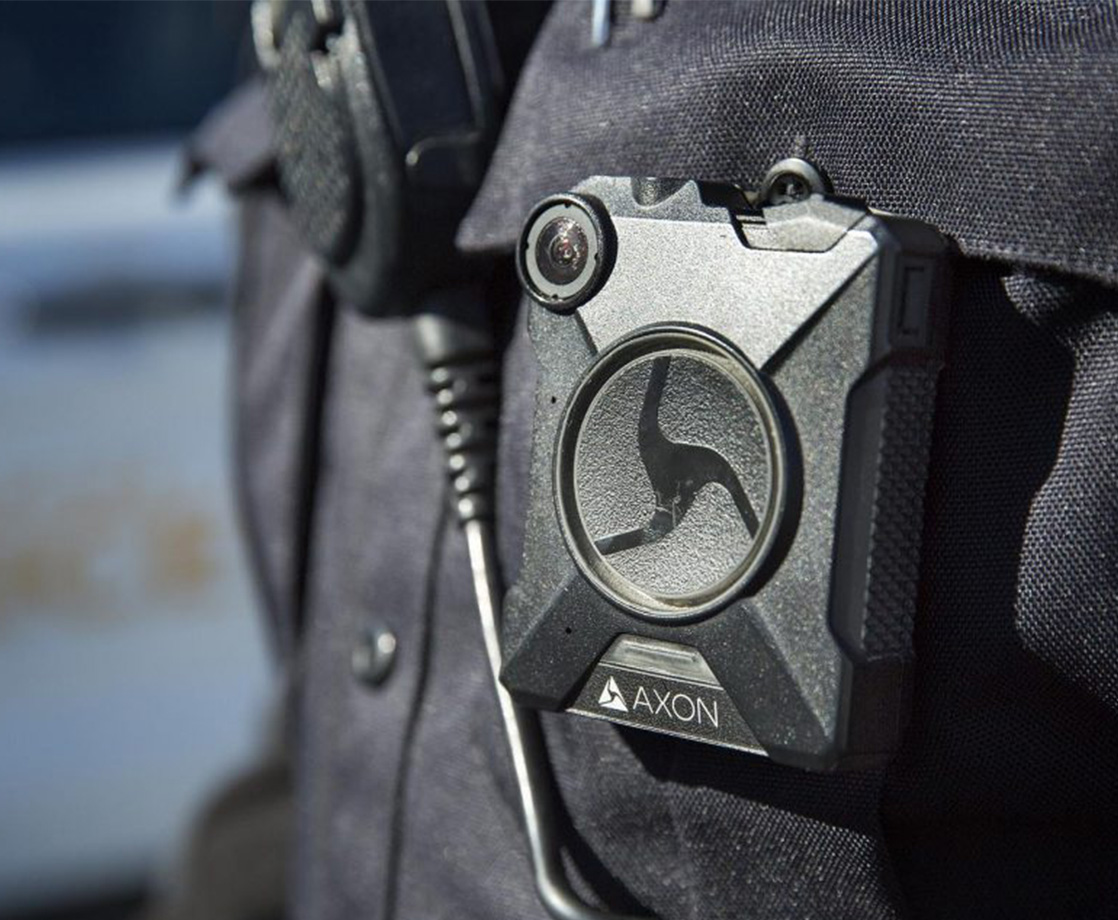Massachusetts is one of 11 US states that has legalized recreational, or adult-use, marijuana. The state has long permitted delivery services for medical marijuana, which is necessary for patients who are disabled and don’t have a caregiver who can run to the dispensary to pick up their medicine.
The Massachusetts Cannabis Control Commission is currently hammering out rules for delivering recreational weed, and among those proposals: Body cams equipped on all weed delivery employees.
Most people only ever see body cams on cops, and that’s because folks got tired of hearing about unarmed perps getting shot to death by police. So, what gives with requiring body cams when ordering an ounce of herb like a pizza?
Regulators in Massachusetts say they’re worried about the delivery servicers’ safety. “Massachusetts has seen violence associated with marijuana [deliveries] on the illicit side, and the commission is obligated to acknowledge that risk and protect the people delivering it through preventative measures,” Walpole Police Chief John Carmichael, who also serves on the state’s Cannabis Advisory Board, said during a public comment hearing this week. “The body cameras are just one way of doing that.”
Of course, illicit weed dealers aren’t the only pot operators who’ve experienced violence. It happens to the legit operators all the time, too.
But, believe it or not, pizza delivery drivers work one of the most dangerous jobs in the US, and they’re often targeted by muggers, car jackers, and outright murderers. Why isn’t anyone proposing body cams for pizza delivery workers? Besides the fact that a lot of Americans don’t truly give two shits about delivery workers — regardless of the delivered product — businesses employing those drivers don’t want to foot the extra costs for expensive equipment, either.
“At some point, expensive and onerous regulations like body cameras will threaten the viability of these businesses,” Matt Allen, field director for the ACLU of Massachusetts, told the Boston Globe. “And ultimately, if these businesses are too costly to operate, the illicit and gray markets will continue to thrive.”
How much cost are we actually looking at here? According to the Police Executive Research Forum, the cost for just one body cam is about $130. But cams require maintenance over time as well as video streaming and storage services. Altogether, a maintenance bundle can run as high as $700 – for one camera.
Now, consider that Massachusetts’ proposal requires that each delivery vehicle must host multiple cameras. Under the proposal, every vehicle must transport two delivery workers at all times, both workers must wear body cams, and the vehicle must have at least one additional camera to monitor the goods inside. You can see how the costs will quickly rack up for a full-time weed delivery service company with multiple vehicles and multiple delivery employees.
Costs have served as the biggest barrier to entry into the regulated weed industry. And those barrier-costs have, for years, shut-out entrepreneurs who aren’t sitting on a pile of money. Which means would-be business owners who traditionally have lower incomes, like those who grew up in or currently reside in neighborhoods targeted by law enforcement, could see themselves softly blocked from the delivery side of the industry, too.
Gallery — Tons of Weed That No One Is Smoking But Cops:
Social equity problems and costs aside, there are serious privacy concerns involved with body cams, as well.
“Cannabis consumers have been targeted and monitored for decades,” said Joseph Gilmore, president of the Massachusetts Recreational Consumer Council. “To require body cameras on legal cannabis deliveries is an invasion of privacy and perpetuates the false notion that marijuana attracts criminal activity.”
Privacy issues, and the legal consequences of violating a cannabis consumer’s privacy, burns at the heart of the body cam controversy. Weed legalization was sold to the public as being “regulated like alcohol,” but federal prohibition on pot complicates all attempts to actually regulate bud like booze.
For instance, federal law enforcement — like the DEA or FBI — can easily subpoena body cam footage. In other regulated (read: legal) industries, law enforcement must have probable cause to seize and search video footage, even from businesses like liquor stores. But that’s not how it works with state-regulated weed, since it’s still considered illegal at the federal level.
Furthermore, immigration agencies like ICE could easily abuse seized body cam footage to target immigrants, even if those immigrants have not broken any state or local laws. Since marijuana is federally illegal, possessing, consuming, or buying it could get an immigrant instantly deported, undocumented or otherwise.
Also, last but not least, violation of a cannabis customer’s privacy could cause other non-legal headaches, like getting fired from a job or losing custody of one’s children.
Massachusetts recreational weed delivery services, however, exist in a legal-gray area. Technically, deliveries for recreational pot aren’t allowed at the moment, although some crafty companies have circumvented the regulations by offering to deliver overpriced non-cannabis products (like t-shirts) while providing a “free gift” in the form of weed. However, that “cannabis donation model” hasn’t worked in other states (in fact, it’s gotten people thrown in prison).
Other states, such as California, Oregon, and Nevada have already allowed recreational weed sales. And body cams aren’t required for delivery workers in those states.
Follow Randy Robinson on Twitter











